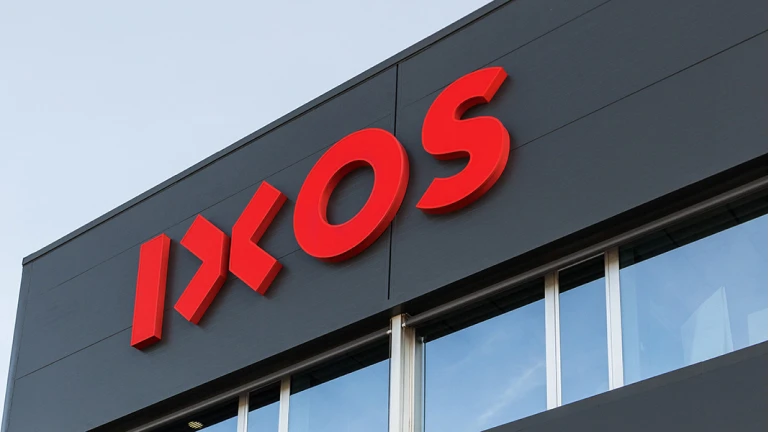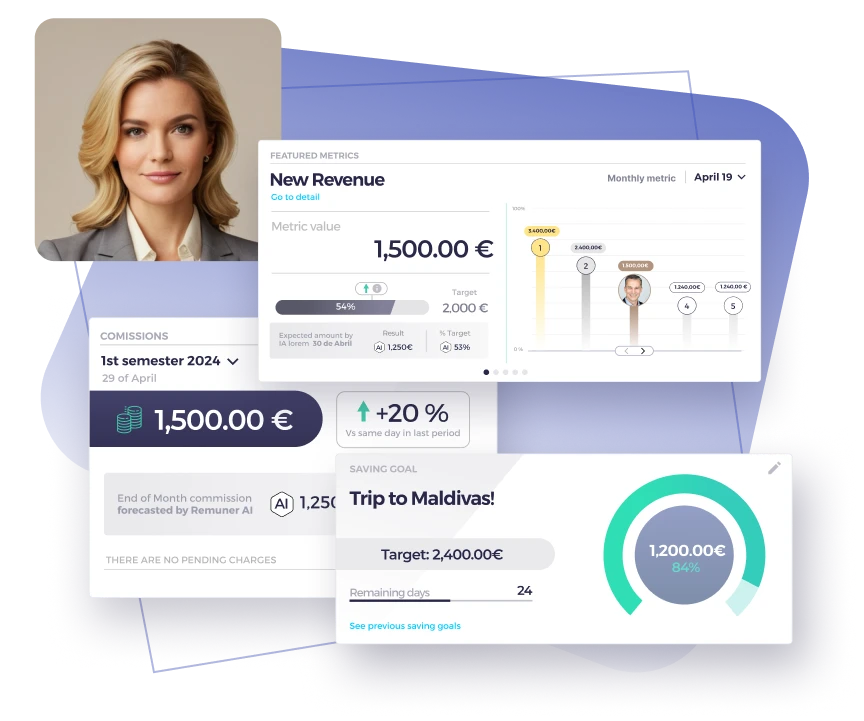In sales, few things drive performance like the potential for unlimited earnings. Uncapped commission offers just that, allowing salespeople to earn without limits by closing deals and exceeding quotas. Unlike capped models, this kind of commission ties earnings directly to effort, rewarding top performers for the value they bring. Let’s dive into how uncapped commission impacts sales performance and why it's a game-changer in compensation plans.
Table of contents
What is an uncapped commission?
Uncapped commission means there’s no limit to how much a salesperson can earn in commission. Sales reps receive a percentage of each sale they close, regardless of the total amount. If a rep is offered 10% commission on sales and closes $200,000 in deals, they earn $20,000. The difference from capped models is clear: while capped commissions set a maximum earnings limit, uncapped ones allow limitless income potential.
How uncapped commission motivates sales reps
Salespeople thrive on competition and rewards. With uncapped commission, the sky’s the limit. This structure ensures reps stay motivated to close deals long after hitting their quotas. In capped models, motivation often drops once reps hit their cap; they know additional effort won’t boost their income. In an uncapped system, though, salespeople have every reason to keep pushing.
For example, a sales rep with a $50,000 monthly quota in a capped commission structure might ease off after hitting their target, knowing their earnings won’t increase. But in an uncapped model, they’ll keep going, aiming for bigger deals, which directly boosts both their earnings and the company’s sales performance.
Benefits of Uncapped Commission
Implementing uncapped commission offers advantages to both sales teams and businesses:
- Increased motivation: Reps are driven to exceed quotas since they know there’s no earning limit.
- Attracts top talent: High-performing salespeople are drawn to companies offering uncapped earning potential.
- Improved sales performance: Reps work harder, leading to more closed deals and better company performance.
- Encourages long-term growth: Salespeople are likely to stay longer, nurturing relationships and generating more revenue over time.
- Revenue alignment: Businesses only pay for performance, ensuring commissions are proportional to results.
How uncapped commission fits into compensation plans
In an uncapped commission plan, companies must balance base salary, OTE (on-target earnings), and variable pay. A typical structure offers a mix of fixed salary with uncapped variable pay. For instance, a rep with a $120,000 OTE might have a $70,000 base salary, with the remaining $50,000 coming from commissions. If the rep exceeds their quota, their earnings can go far beyond on-target earnings due to uncapped commission.
To ensure the plan is effective, companies should set realistic quotas that allow high performers to achieve substantial earnings. This kind of commission rewards salespeople for going beyond expectations, which benefits both the individual and the company.
Examples of uncapped commission in action
Example 1: Technology Sales
In tech, uncapped commission motivates sales reps to close large, complex deals. Imagine a company offers a 15% uncapped commission. A rep who closes a $500,000 deal earns $75,000. Since their earnings have no limit, they remain driven to pursue more deals, boosting both their income and sales performance.
Example 2: Real Estate
Real estate agents often operate under uncapped commission structures. A 3% commission on a $1 million home sale brings in $30,000 for the agent. Because there’s no cap, agents are encouraged to take on more listings and aim for higher-value properties.
Example 3: Financial Services
In financial services, this kind of commission rewards wealth managers for bringing in new clients. If a financial advisor earns a 5% commission on new investments and secures $2 million in new assets, they earn $100,000. This structure pushes advisors to focus on high-net-worth clients, boosting both their compensation and the company’s revenue.
Example 4: Retail Sales
In retail, uncapped commission can incentivize sales associates to go above and beyond. For instance, a clothing store offers a 10% uncapped commission on sales. If an associate sells $50,000 worth of merchandise in a month, they earn $5,000. With no cap on earnings, associates are motivated to improve their customer service, increase upselling efforts, and drive more sales, which boosts both their income and the store’s profitability.
Balancing risk and reward
While uncapped commission offers many benefits, it’s important to manage potential risks. High performers can earn large commissions, potentially affecting a company’s budget. To balance this, businesses can design their plans with sliding commission scales. For example, a company might offer a higher commission rate for larger deals or set a tiered system where higher earnings unlock higher commission percentages.
Setting realistic quotas
A successful uncapped commission plan relies on setting the right quotas. Quotas must challenge sales reps but also allow them to earn significant commissions by exceeding targets. For instance, a company might set a $500,000 quarterly quota, with a 5% commission rate up to the quota and 7% for sales beyond that. This encourages reps to go above and beyond, knowing they’ll earn more as their performance improves.

The impact on sales performance
Uncapped commission doesn’t just motivate individual reps—it drives overall sales performance. With limitless earnings potential, salespeople are more likely to push for larger deals and new opportunities. This model fosters a high-performance culture, where reps continuously strive to improve, knowing every extra sale directly impacts their income.
Additionally, it helps retain top performers. Salespeople who excel in uncapped environments are likely to stay longer, building relationships and driving long-term revenue. They know their hard work is always rewarded, making them more loyal to the company.
Unleashing potential with uncapped commission
Uncapped commission is a proven way to boost motivation and performance in sales teams. It encourages reps to exceed their quotas, knowing their earning potential is unlimited. For companies, this model aligns compensation with revenue generation, ensuring commissions are paid based on performance.
By setting realistic quotas and designing thoughtful compensation plans, businesses can harness the power of uncapped commission to drive consistent sales performance and long-term success. Whether in technology, real estate, or financial services, this commission rewards hard work, attracts top talent, and fuels growth.
How Remuner can help you with your plans
Remuner simplifies the management of uncapped commission structures by automating your entire compensation process. With Remuner, you can easily design and implement commission plans tailored to your business needs using our no-code platform. Our system integrates with your CRM and ERP, providing real-time insights into sales performance and sales incentives. This transparency helps ensure that sales teams stay motivated and aligned with company goals, while finance and operations teams have full control over compensation accuracy and budget. Remuner empowers you to build dynamic, scalable commission plans that maximize your team’s potential.





